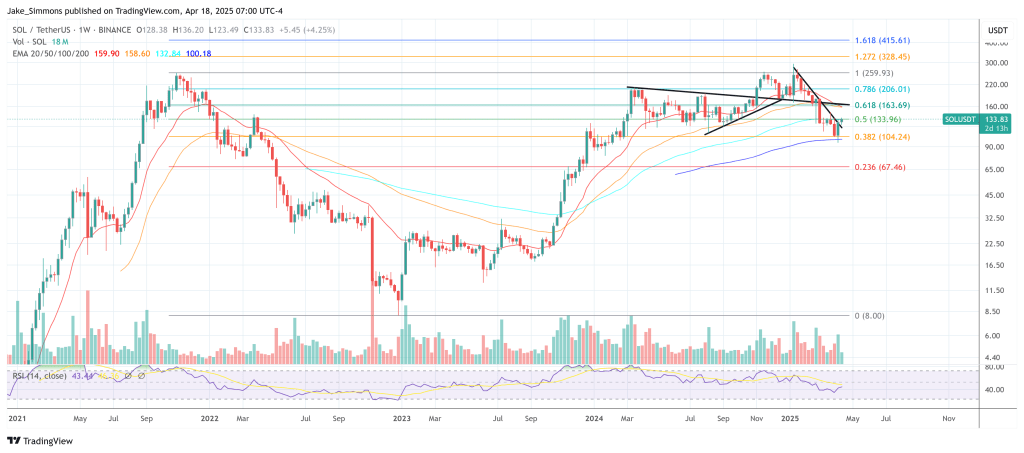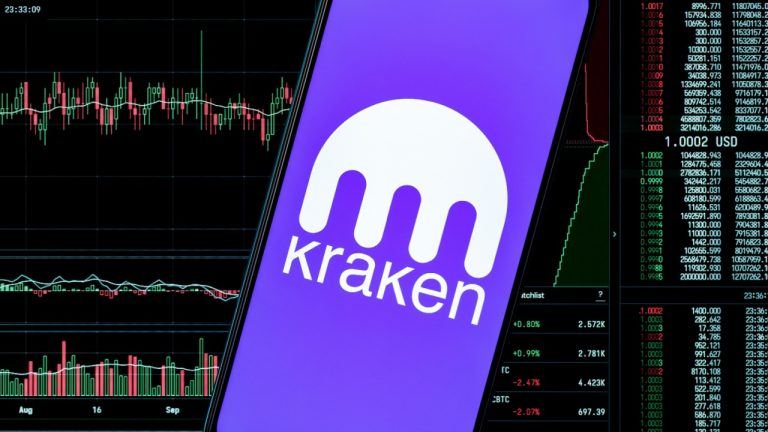If there's any one solid metric proving that the death of crypto has been greatly exaggerated, it's the number of access points for investors to buy crypto.
- There are more than 150 crypto exchange-traded products globally, according to research firm ETFGI. Collectively, they hold nearly $11 billion in assets under management.
- The U.S. accounts for three of them, ETFGI managing partner Deborah Fuhr tells Axios, speaking to how restrictive U.S. regulators are.
Why it matters: People want an easy, direct way to invest in crypto, like they invest in stocks and bonds, but regulators have yet to approve them.
So far, the Securities and Exchange Commission has only approved ETFs that hold bitcoin futures, which investors use to trade on the price they think bitcoin will strike, without actually owning any bitcoin.
Details: ETFs are vehicles that can hold virtually any asset, whether they are stocks, bonds or commodities like gold — but not for crypto, at least not directly, in the U.S.
- Spot bitcoin ETFs do exist as true ETFs: In Canada.
- In Europe, these are structured as exchange-traded products (ETPs). The vast majority of ETPs are ETFs, but some are technically different.
- For example, Fidelity's Physical Bitcoin ETP, which launched on the German Xetra Exchange earlier this year, is a debt instrument.
State of play: Grayscale's application for a spot bitcoin ETF was rejected by the SEC in June, putting the firm's plans to convert the $14 billion Grayscale Bitcoin Trust into an ETF.
- The bitcoin vehicle, often referred to by its symbol "GBTC", is technically not a fund, but a trust.
- GBTC, because of this structure, lacks flexibility that ETFs do to create and remove shares, without disrupting the underlying assets.
The way Grayscale's product works is like that of closed-end funds. In that only Grayscale can create or remove shares from the market, and the firm does so, through private placements and redemptions available solely to accredited investors, when the firm wants.
- Accredited investors are those whose net worth is more than $1 million or income above $200,000 a year.
How it works: The great thing about an ETF is that through the use of people or firms called "authorized participants," shares can be created and removed from the market as needed, by exchanging them for pro-rata slices of the portfolio they represent.
- That creation/redemption mechanism is what keeps an ETF's price close to the net asset value of the ETF's underlying assets.
- It also can benefit from fewer taxable events than say a mutual fund.
What's happening: Regulators and wannabe spot bitcoin ETF issuers appear to have reached an impasse in the U.S., with ETF shops continuing to file applications in the face of serial rejection.
Be smart: That's because being first matters.
- Recall that the the first bitcoin futures ETF launched by ProShares reached assets under management of $1 billion...in mere days.
- Valkyrie and VanEck ETFs shortly followed that one, but saw smaller inflows.
The other side: Yet a "whirlwind tour" of crypto ETP activity outside of the U.S. shows a blossoming supply of crypto investment vehicles.
- "In Canada, there are true bitcoin ETFs—regulation in Canada has been very different than the rest of the world," Fuhr of ETFGI, said. "They have real ETFs on bitcoin, ethereum, etc."
- "In Europe, they're structured as ETPs, with the first initially coming out of Scandinavia and then lots coming from Switzerland. Then Germany and Euronext embraced them," she said.
ETF issuers from Brazil to Australia are reaching across jurisdictions to offer their products, according to Fuhr.
- "Brazil has had crypto for a while, so some Brazil issuers are going to Europe. Australia has ETPs, but reaching to Canada and Europe for the underlying exposure," Fuhr said.
Aside from the ETFs that track bitcoin futures, which professional investors use to place indirect trades on bitcoin, U.S. investors will also find funds (ETFs included) that hold crypto stocks.
- They tend to have a mix of mining companies, categorically fintech companies such as Coinbase and Robinhood and crypto shops like Galaxy Digital and er, Voyager Digital.
- Of note: Voyager Digital's stock faces delisting at the Toronto Stock Exchange after filing for bankruptcy proceedings last week.
Crystal's thought bubble: In the U.S. the available options are few and mostly indirect plays on crypto, unless you're rich or well-versed in native crypto transactions.

You can get bonuses upto $100 FREE BONUS when you:
💰 Install these recommended apps:
💲 SocialGood - 100% Crypto Back on Everyday Shopping
💲 xPortal - The DeFi For The Next Billion
💲 CryptoTab Browser - Lightweight, fast, and ready to mine!
💰 Register on these recommended exchanges:
🟡 Binance🟡 Bitfinex🟡 Bitmart🟡 Bittrex🟡 Bitget
🟡 CoinEx🟡 Crypto.com🟡 Gate.io🟡 Huobi🟡 Kucoin.




















Comments